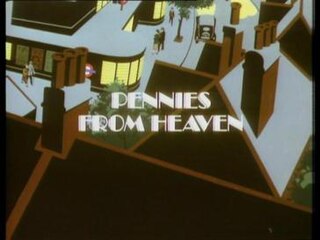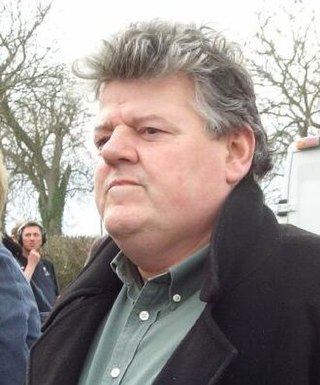
60 Minutes is an American television news magazine broadcast on the CBS television network. Debuting in 1968, the program was created by Don Hewitt and Bill Leonard, who distinguished it from other news programs by using a unique style of reporter-centered investigation. In 2002, 60 Minutes was ranked number six on TV Guide's list of the "50 Greatest TV Shows of All Time", and in 2013, it was ranked number 24 on the magazine's list of the "60 Best Series of All Time". In 2023, Variety ranked 60 Minutes as the twentieth-greatest TV show of all time. The New York Times has called it "one of the most esteemed news magazines on American television".
Cable-Satellite Public Affairs Network is an American cable and satellite television network, created in 1979 by the cable television industry as a nonprofit public service. It televises proceedings of the United States federal government and other public affairs programming. C-SPAN is a private, nonprofit organization funded by its cable and satellite affiliates. It does not have advertisements on any of its television networks or radio stations, nor does it solicit donations or pledges on-air. However their official website has banner advertisements, and streamed videos also have advertisements. The network operates independently; the cable industry and the U.S. Congress have no control over its programming content.

Dennis Christopher George Potter was an English television dramatist, screenwriter and journalist. He is best known for his BBC television serials Pennies from Heaven (1978) and The Singing Detective (1986) as well as the BBC television plays Blue Remembered Hills (1979) and Brimstone and Treacle (1976). His television dramas mixed fantasy and reality, the personal and the social, and often used themes and images from popular culture. Potter is widely regarded as one of the most influential and innovative dramatists to have worked in British television.

ITV Central, previously known as Central Independent Television, Carlton Central, ITV1 for Central England and commonly referred to as simply Central, is the Independent Television franchisee for the Midlands. It was created following the restructuring of ATV and began broadcasting on 1 January 1982. The service is owned and operated by ITV plc under the licensee of ITV Broadcasting Limited. Historically Central made a major contribution to the ITV network schedule – especially in entertainment and drama – but today its main responsibility is the regional news service.

Constance Mary Whitehouse was a British teacher and conservative activist. She campaigned against social liberalism and the mainstream British media, both of which she accused of encouraging a more permissive society. She was the founder and first president of the National Viewers' and Listeners' Association, through which she led a longstanding campaign against the BBC. A hard-line social conservative, she was termed a reactionary by her socially liberal opponents. Her motivation derived from her Christian beliefs, her aversion to the rapid social and political changes in British society of the 1960s, and her work as a teacher of sex education.

UTV is the ITV region covering Northern Ireland, ITV subsidiary and the former on-air name of the free-to-air public broadcast television channel serving the area. It is run by ITV plc and is responsible for the regional news service and programmes made principally for the area by the UTV production team. It currently uses the network ITV1 channel with an opt-out service for local advertising and on-air promos for local programming.

The Big Breakfast is a British breakfast light entertainment television programme that was broadcast on Channel 4 from 1992 to 2002, and as a revival from 2021 to 2022. The show had various presenters, starting with Chris Evans and Gaby Roslin at launch with the revival episodes presented by Mo Gilligan and AJ Odudu.

The British Film Institute (BFI) is a film and television charitable organisation which promotes and preserves film-making and television in the United Kingdom. The BFI uses funds provided by the National Lottery to encourage film production, distribution, and education. It is sponsored by the Department for Culture, Media and Sport, and partially funded under the British Film Institute Act 1949.

Paul Abbott is an English screenwriter and producer. He became one of the most successful television writers in Britain following his work on popular series such as Cracker and Coronation Street, and would become more widely known for creating some of the most acclaimed television dramas of the 1990s and 2000s, including Reckless (1997), Touching Evil (1997–1999), Clocking Off (2000–2003), State of Play (2003), Shameless (2004–2013), and No Offence (2015–2018).

The Wednesday Play is an anthology series of British television plays which ran on BBC1 for six seasons from October 1964 to May 1970. The plays were usually original works written for television, although dramatic adaptations of fiction also featured. The series gained a reputation for presenting contemporary social dramas, and for bringing issues to the attention of a mass audience that would not otherwise have been discussed on screen.

Pennies from Heaven is a 1978 BBC musical drama serial written by Dennis Potter. The title is taken from the song "Pennies from Heaven" written by Johnny Burke and Arthur Johnston. It was one of several Potter serials to mix the reality of the drama with a dark fantasy content, and the earliest of his works where the characters burst into extended performances of popular songs.

David Yates is an English filmmaker, who has directed feature films, short films, and television productions. He is best known for directing the final four films in the Harry Potter series and the three films of its prequel series, Fantastic Beasts. His work on the Harry Potter series brought him critical and commercial success along with accolades, such as the British Academy Britannia Award for Excellence in Directing.

Football Italia was a television programme in the United Kingdom, showing Italian football, that ran from 1992 to 2002 on Channel 4, and continued until 2008 on other channels. It was known as Football Italiano in its final season.

Eurotrash is a 30-minute magazine-format programme in English, presented by Antoine de Caunes and Jean-Paul Gaultier and produced by Rapido Television. It was shown in the United Kingdom and Republic of Ireland on Channel 4 from 24 September 1993 and was a late-night comical review of unusual topics mainly from Western and Central Europe; though, despite the title, also around the world.

After Dark was a British late-night live television discussion programme that was broadcast weekly on Channel 4 between 1987 and 1991, and which returned for specials between 1993 and 1997. It was later revived by the BBC for a single season, broadcast on BBC Four in 2003.

Open Media is a British television production company, best known for the discussion series After Dark, described in the national press as "the most original programme on television".

Anthony Robert McMillan, known professionally as Robbie Coltrane, was a Scottish actor. He gained worldwide recognition in the 2000s for playing Rubeus Hagrid in the Harry Potter film series. He was appointed an OBE in the 2006 New Year Honours by Queen Elizabeth II for his services to drama. In 1990, Coltrane received the Evening Standard British Film Award – Peter Sellers Award for Comedy. In 2011, he was honoured for his "outstanding contribution" to film at the British Academy Scotland Awards.
The Supreme Court of the United States does not allow cameras in the courtroom when the court is in session, a policy which is the subject of much debate. Although the Court has never allowed cameras in its courtroom, it does make audiotapes of oral arguments and opinions available to the public. Additionally, the Court has provided live audio of all oral arguments since May 2020.
Blackeyes is a BBC television miniseries first broadcast in 1989, written and directed by Dennis Potter. It was adapted from Potter's novel of the same name.
John Bulmer is a photographer, notable for his early use of colour in photojournalism, and a filmmaker.















